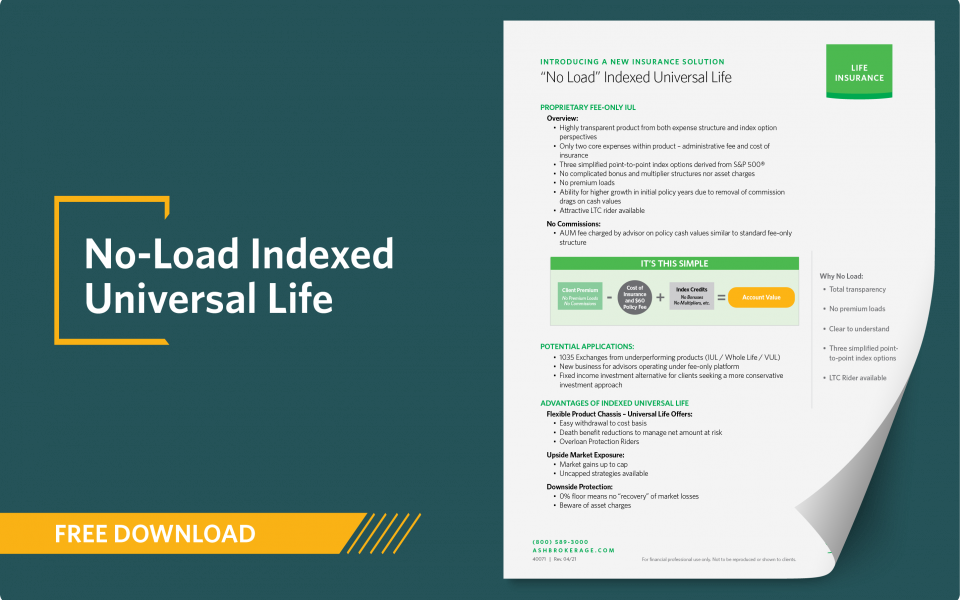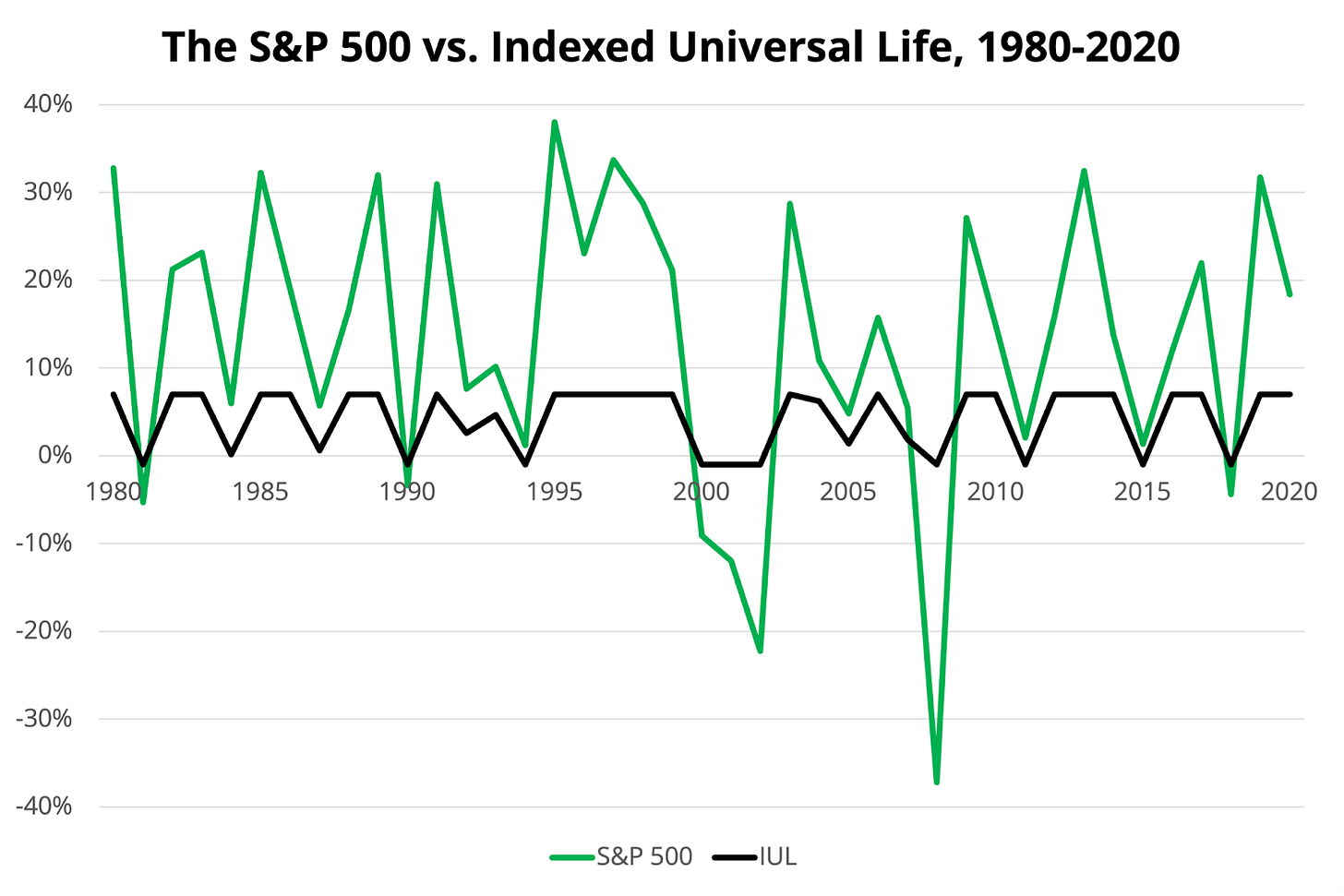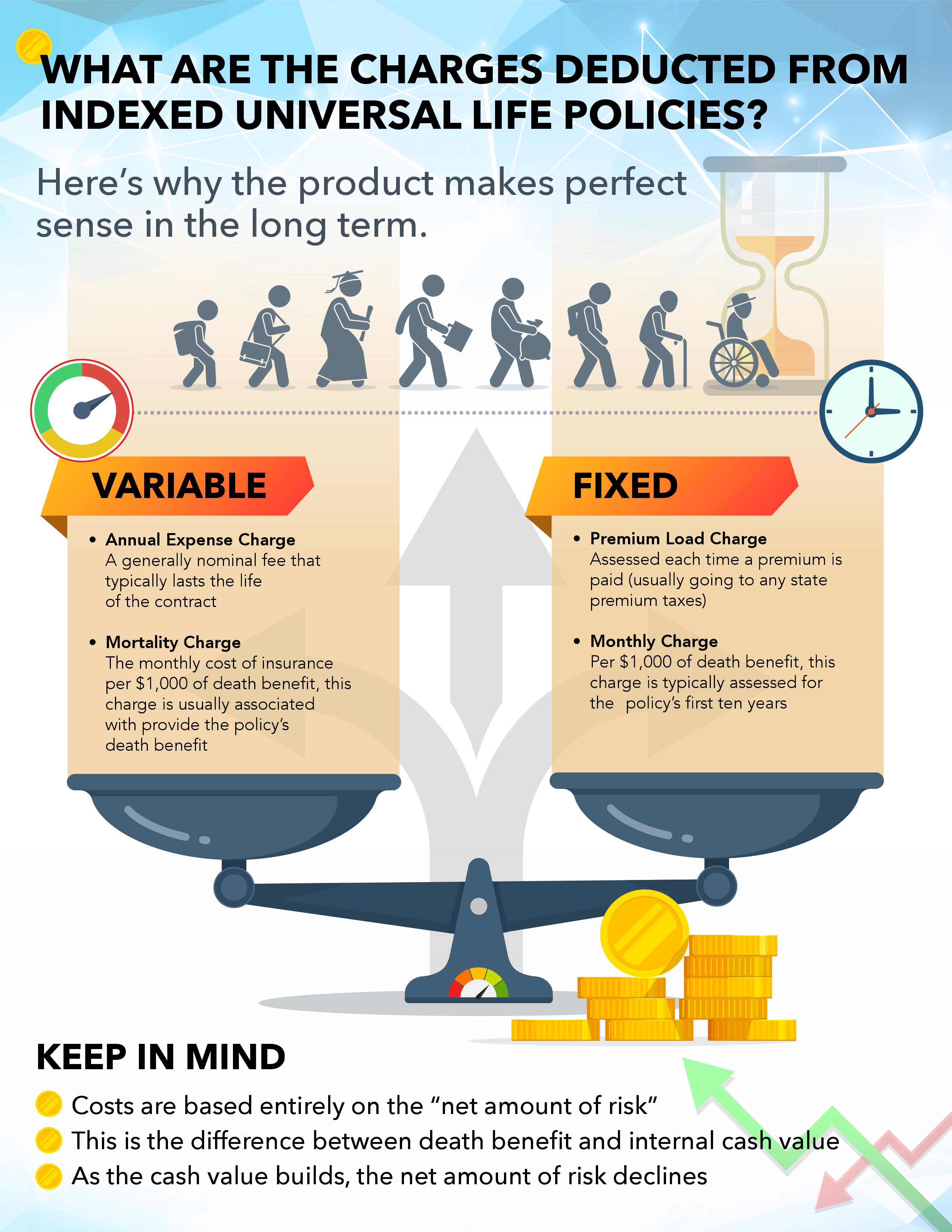All Categories
Featured
Table of Contents
Do they compare the IUL to something like the Lead Overall Supply Market Fund Admiral Shares with no lots, an expense proportion (ER) of 5 basis points, a turnover proportion of 4.3%, and an extraordinary tax-efficient record of circulations? No, they compare it to some horrible actively taken care of fund with an 8% tons, a 2% EMERGENCY ROOM, an 80% turn over proportion, and a terrible document of short-term funding gain distributions.
Common funds typically make yearly taxed circulations to fund proprietors, also when the value of their fund has gone down in worth. Mutual funds not just need earnings reporting (and the resulting annual tax) when the shared fund is increasing in value, however can likewise enforce revenue tax obligations in a year when the fund has dropped in value.
You can tax-manage the fund, harvesting losses and gains in order to lessen taxed circulations to the investors, yet that isn't somehow going to change the reported return of the fund. The possession of mutual funds may require the shared fund owner to pay projected tax obligations (iul life insurance pros and cons).

IULs are simple to position so that, at the owner's death, the recipient is not subject to either earnings or estate tax obligations. The same tax obligation decrease techniques do not function nearly too with mutual funds. There are many, commonly costly, tax traps related to the timed trading of shared fund shares, catches that do not apply to indexed life insurance policy.
Possibilities aren't extremely high that you're going to be subject to the AMT because of your shared fund distributions if you aren't without them. The remainder of this one is half-truths at best. While it is real that there is no earnings tax obligation due to your successors when they inherit the proceeds of your IUL plan, it is also real that there is no income tax obligation due to your successors when they inherit a mutual fund in a taxed account from you.
Index Linked Insurance
The government inheritance tax exception limitation mores than $10 Million for a pair, and growing annually with rising cost of living. It's a non-issue for the substantial majority of medical professionals, a lot less the rest of America. There are far better means to stay clear of estate tax obligation issues than purchasing investments with low returns. Shared funds may create income tax of Social Safety advantages.

The growth within the IUL is tax-deferred and may be taken as free of tax revenue through fundings. The policy owner (vs. the common fund manager) is in control of his or her reportable income, therefore allowing them to minimize or perhaps eliminate the taxation of their Social Protection benefits. This one is wonderful.
Here's another marginal issue. It's true if you buy a mutual fund for claim $10 per share just prior to the distribution date, and it distributes a $0.50 distribution, you are then going to owe tax obligations (possibly 7-10 cents per share) although that you have not yet had any kind of gains.
Yet in the end, it's actually concerning the after-tax return, not just how much you pay in tax obligations. You are mosting likely to pay even more in taxes by using a taxed account than if you get life insurance policy. But you're also probably going to have even more money after paying those taxes. The record-keeping demands for having shared funds are significantly much more intricate.
With an IUL, one's records are kept by the insurance provider, duplicates of annual declarations are mailed to the proprietor, and circulations (if any) are completed and reported at year end. This one is likewise type of silly. Of program you should maintain your tax obligation documents in situation of an audit.
Universal Life Form
Barely a factor to get life insurance coverage. Shared funds are typically part of a decedent's probated estate.
Furthermore, they undergo the delays and expenses of probate. The earnings of the IUL policy, on the other hand, is constantly a non-probate distribution that passes outside of probate straight to one's called beneficiaries, and is as a result exempt to one's posthumous creditors, unwanted public disclosure, or comparable delays and expenses.
We covered this set under # 7, yet just to wrap up, if you have a taxable mutual fund account, you need to place it in a revocable count on (and even less complicated, make use of the Transfer on Fatality classification) in order to stay clear of probate. Medicaid incompetency and life time revenue. An IUL can provide their proprietors with a stream of income for their whole life time, no matter how much time they live.

This is helpful when arranging one's events, and converting assets to earnings before a retirement home confinement. Common funds can not be converted in a comparable manner, and are generally considered countable Medicaid possessions. This is an additional foolish one promoting that poor individuals (you understand, the ones that require Medicaid, a government program for the poor, to spend for their assisted living facility) must use IUL rather than common funds.
Universal Vs Whole Life Comparison
And life insurance policy looks terrible when compared relatively versus a pension. Second, people that have cash to buy IUL above and beyond their retirement accounts are going to have to be terrible at handling cash in order to ever before qualify for Medicaid to pay for their assisted living facility costs.
Chronic and incurable illness motorcyclist. All policies will certainly enable an owner's easy accessibility to cash money from their policy, frequently forgoing any surrender charges when such individuals experience a major disease, require at-home care, or come to be restricted to a nursing home. Shared funds do not offer a similar waiver when contingent deferred sales charges still put on a shared fund account whose proprietor needs to offer some shares to fund the prices of such a keep.
Universal Life Insurance Cash Value Withdrawal
Yet you reach pay even more for that advantage (motorcyclist) with an insurance coverage. What a lot! Indexed universal life insurance policy provides survivor benefit to the beneficiaries of the IUL owners, and neither the proprietor neither the recipient can ever lose cash as a result of a down market. Mutual funds give no such guarantees or survivor benefit of any kind.
I certainly do not need one after I get to monetary freedom. Do I desire one? On average, a buyer of life insurance coverage pays for the real cost of the life insurance coverage advantage, plus the prices of the plan, plus the revenues of the insurance policy company.
Universal Life Policy Calculator
I'm not completely sure why Mr. Morais included the entire "you can't shed cash" once more below as it was covered rather well in # 1. He just intended to repeat the very best marketing factor for these points I expect. Again, you do not lose small bucks, but you can lose actual dollars, in addition to face major chance expense due to reduced returns.

An indexed universal life insurance policy policy owner may exchange their policy for a totally different policy without triggering earnings taxes. A shared fund proprietor can not relocate funds from one common fund company to an additional without marketing his shares at the previous (thus activating a taxable event), and repurchasing brand-new shares at the last, commonly subject to sales charges at both.
While it holds true that you can exchange one insurance plan for an additional, the factor that people do this is that the initial one is such an awful policy that even after purchasing a new one and experiencing the early, unfavorable return years, you'll still come out in advance. If they were marketed the ideal plan the first time, they should not have any wish to ever before trade it and undergo the early, adverse return years again.
Latest Posts
Term Life Insurance Vs Universal
Top Iul Carriers 2020
Variable Universal Life Vs Indexed Universal Life